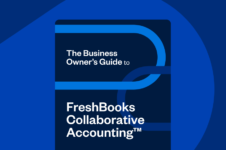Setting out for self-employment? It's important you think like a business owner.

Are you planning to have a taste of self-employment? Make sure you leave your employee mindset behind and think like a business owner or it will spoil all the fun.
Many employees around the world dream of making the leap from a traditional nine-to-five job to entrepreneurship or freelancing work—of walking into their boss’s office, resigning on the spot and riding off into the sunset and freedom they envision for their new lives (ask me how I know).
According to a collaborative report by Upwork and the Freelancers Union, 56.7 million Americans engaged in some form of freelance work in 2018—a 3.7 million increase since 2014. What’s even more interesting, 51% of freelancers admitted they would not even consider returning to a traditional job, regardless of the money.
This clearly indicates that the shift in the market is already happening. However, as more people are lured to the greener pastures of self-employment, they often take a deeply ingrained employee mindset along for the ride rather than thinking like a business owner.
Business Owner vs. Employee Mindset
Don’t get me wrong. Business owners are not inherently better than employees, or vice versa. I believe you can find fulfillment in walking each of these paths. However, when employees who have only ever worked in traditional roles leave these positions to work for themselves, they risk running their businesses with the wrong mindset, sometimes into the ground.
To begin with, both groups have vastly different sets of concerns. Employees must focus on completing their tasks on time in order to get paid (and not get fired), while business owners’ first priority is securing a steady stream of orders or projects to keep the company afloat. At least that’s how it looks on the surface.
My experience as an employee taught me to say yes to projects and to work on them until completion. And that was basically it. I never really took a moment to appreciate the behind-the-scenes work of the accounting department, marketing folks and management who were making sure the company was running smoothly.
I had never before had to look at the bigger picture: connect the dots and actually take responsibility for more than just the work piling up on my desk. As long as my salary trickled in each month, I lived in blissful ignorance in terms of the financial state of the company.
Things changed when I became self-employed. I learned the hard way that it’s not enough to call yourself an entrepreneur. You have to think like one. If I were to start from scratch, the following pieces of advice would save me from plenty of trouble.
Business Owners Bill for Overhead
According to the same report on the freelancing market in America, 73% of full-time freelancers said they earned more compared to their previous positions as employees. And while this is certainly good news to those planning to convert, there’s a catch.
If you’re a traditional employee, $20-30 per hour might seem like a generous wage. Couple that with benefits such as paid time off, life insurance and wellness programs, and you get an attractive package (many don’t really appreciate). The company also provides you with a desk, computer and other tools you need to do your part.
As a business owner, however, all the expenses previously taken care of by your employer will be draining your pocket. Yes! That means no gym membership card until you make enough money to afford one. You need to set your rates accordingly to account for these costs and your daily living expenses.
Here are a few extra things you should keep in mind when planning your budget:
Taxes
Your employer is no longer around to calculate and deduct your taxes. You can either try to do it yourself (a terrible idea) or hire an accountant to do that for you (overhead). The IRS will also come looking for a full contribution towards Social Security and Medicare. For that reason, aim to save at least 20-25% of your pre-tax income to account for the additional expense.
Insurance
If you aren’t lucky enough to have insurance benefits through a spouse or other family member, you’ll need to purchase your own. Health, dental, life or disability coverage can run you hundreds of dollars each month. Business-wise, it’s also a good idea to secure the work you deliver. This means spending extra on liability and business interruption insurance. Check out this Forbes article to learn more.
Retirement Contribution
You may no longer have an employer match for your retirement account, but that doesn’t mean your financial needs later in life disappear. Look into Self-Employed 401(k), (SIMPLE) IRA or SEP IRA and take your pick. Regardless of which option you choose, that’s another share of your monthly income going towards a peaceful retirement.
Office Equipment and Stationery Supplies
Need a nice desk and a comfortable chair to work from home? Running low on business cards? A business software license is expiring tomorrow? As a freelancer, you can’t push these expenses to your boss anymore–they’re your responsibility now.
Marketing
Getting the word out about your business means advertising. While you can try spreading the word amidst friends and family or attend networking events, at some point you will want to expand. Digital advertising, like Facebook Ads, is still relatively cheap compared to traditional media outlets, but it’s not free.
Maybe it’s time to move away from using freelancing calculators to determine your hourly rate and instead start charging based on the value you bring to your clients—a great resource for how to do this is FreshBooks’ free eBook Breaking the Time Barrier.
Business Owners Plan Long-Term
If you’re just taking baby steps as a business owner, chances are that you still think only as far as the next project. When I was getting started, short-term planning was one of the most difficult things to part with.
Seasoned business owners are constantly thinking ahead about the future of their companies. Should the business put more emphasis on one product than another? Are there any potential industry shifts on the horizon that could affect the company’s prospective customers and how they should be marketed to?
In the beginning, however, it’s easy to fall into a vicious circle of getting “one more project” done (because there are bills to pay) and neglect other aspects of running a company.
Worse, many freelancers notoriously undercharge and pack their schedules with low-quality gigs, even if they have the skills and experience to earn more. Instead of doing the work they love, they churn out piece after piece without really moving forward.
Talk about a lose-lose situation!
To avoid getting trapped in this limbo, try to commit at least one hour a day to business growth—not client work. Use this hour to research your industry, brainstorm new products or marketing ideas. Network with potential customers or invest the time into professional development work needed to position yourself for the kind of work you want to do—not just what’s fallen into your lap.
Business Owners Delegate Work
Do you think the CEO of Microsoft does his own accounting? Do you think that Apple’s chief executive is the one writing the press releases that appear on the company’s website? Of course not—they recognize the need to outsource!
When you’re a fresh solopreneur, you may be required to wear many different hats due to limited funds. But as soon as your business allows you some wiggle room, aim to outsource certain company needs to professionals who are more qualified to take them on.
Where should you start? Typically, freelancers’ money is best spent handing over accounting and legal tasks to experts in these areas. Later on, you’ll learn how to delegate other aspects of your work and focus on what’s really important. Trust me, it will feel good to finally have more time to tackle real work!
Ready to build your dream team? Check out our article on how to hire subcontractors.
Conclusion: Think Like a Business Owner
Have you run into these types of challenges before? Share your thoughts and tell us how you overcame the employee mindset and learned to run your company and think like a business owner by leaving a comment below.
This is an optimized post and was originally published on the FreshBooks Blog in March 2015.

Written by Dawid Bednarski, Freelance Contributor
Posted on June 4, 2019

 Roundup: Advice I’d Give Myself in Year 1 of My Business
Roundup: Advice I’d Give Myself in Year 1 of My Business 5 Types of Partners You Need to Grow Your Small Business
5 Types of Partners You Need to Grow Your Small Business Meet Lisa, a Writer Who Mastered Organization After Switching to Cloud Accounting
Meet Lisa, a Writer Who Mastered Organization After Switching to Cloud Accounting






